PCOS Diet Plan: How To Control PCOS With Diet And Exercise
Balance hormones and boost vitality through smart nutrition and active lifestyle choices.
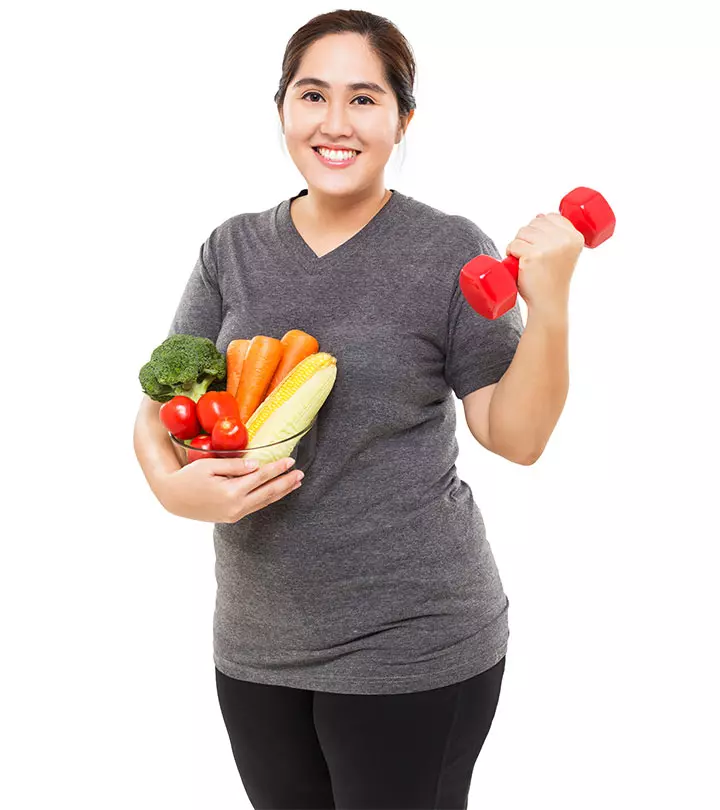
Image: Shutterstock
The PCOS diet plan helps women manage PCOS better. Research shows that such a diet can help avoid the negative effects of PCOS (1). PCOS, or polycystic ovarian syndrome, is a hormonal disorder. It mainly affects women in their reproductive age. A few symptoms include formation of multiple cysts in the ovaries, weight gain, facial hair, depression, irregular or no/prolonged periods, and diabetes (2). A planned PCOS diet and workout regimen can help reverse these. Read on to know all about the PCOS diet and use the 7-day PCOS diet and exercise plan we have included for you.
In This Article
What Is PCOS?
PCOS or Polycystic Ovarian Syndrome is a hormonal imbalance that occurs in women of reproductive age, which leads to small cysts in the ovaries, more androgen production, insulin resistance, facial hair, depression, anxiety, diabetes, and infertility.
Worldwide, more than 100 million people have PCOS. And though genes play a vital role, lack of exercise and proper diet can also lead to this condition. But how? Well, PCOS is interlinked with diabetes, unhealthy lifestyle, hormones, and insulin resistance. Let’s talk about it in detail so that you understand your condition better.
What Causes PCOS And Why Do You Gain Weight?
PCOS or cysts in the ovaries are mainly caused due to hormonal imbalance. The second most predominant cause is faulty genes. Stress, unhealthy foods, and following an unhealthy lifestyle for a prolonged period can trigger PCOS. So, even if no one in your family has PCOS, you can have cysts in your ovaries. How is that possible? Here’s a brief explanation.
Your pancreas produces a hormone called insulin that helps transport glucose to the cells for further breakdown and energy release. When you follow unhealthy food habits, your glucose levels are constantly high. This causes the beta cells in the pancreas to secrete more insulin to lower the blood glucose levels. When there’s a constant high level of insulin, your body becomes insulin resistant. It is similar to mosquitoes being resistant to DDT or bacteria becoming resistant to antibiotics. So, now that your body is insulin resistant, the blood sugar levels remain high. This, in turn, triggers even more insulin production.
In the meanwhile, your cells are devoid of glucose or sugar to convert it into energy. This is precisely the reason you constantly feel hungry and lethargic. Insulin resistance causes diabetes and imbalance in the hormones, especially the androgens, leading to hirsutism (excess facial hair) and PCOS. Sometimes, the beta cells just don’t produce enough insulin, and therefore, your blood glucose levels remain high for prolonged periods.
It is a complex process, but it sure has got to do a lot with what and how much food you eat. We will get to that in a while. First, let’s take a look at the symptoms of PCOS.
PCOS Symptoms
Here are some symptoms that you should be aware of:
- Irregular or no periods
- Excessive bleeding for prolonged periods
- Weight gain
- Facial hair
- Male pattern baldness
- Hyperpigmentation in the inner thigh area
- Depression
- Anxiety
- Increased appetite
- Insulin resistance
- Hypertension
If you are experiencing any of these symptoms, here’s what you should do.
So You Think You Have PCOS? Do This!
You must immediately book an appointment with your gynecologist. Your doctor is the best person to confirm whether or not you have PCOS. You might need to get an ultrasound done and take medications. Medication will depend on the severity of the issue and if you are planning to start a family soon.
Bottom line: Do not assume you have PCOS unless your doctor confirms it.
Just relax, get the tests done, take the medicines on time, and more importantly, change your diet and lifestyle. This would be the best treatment for PCOS. Here’s a 7-day PCOS diet plan for you.
7-Day PCOS Diet Plan
This PCOS diet chart has been created keeping overweight or high BMI PCOS patients in mind. Talk to a nutritionist if you are a lean PCOS patient.
Day 1
Any day can be Day One of this diet. You do not have to wait for the coming Monday or even next month. Here’s what you should eat.
| Meals | What To Eat |
|---|---|
| Early Morning (6:00 a.m.) | 2 teaspoons fenugreek seeds soaked overnight in 1 cup water |
| Breakfast (7:00 a.m.) | 1 boiled whole egg + 1 cup green tea + ½ cup papaya + 2 almonds |
| Mid-morning (9:30 – 10:00 a.m.) | 1 cup green tea + 1 carrot |
| Lunch (12:00 – 12:30 p.m.) | 1 small bowl of brown rice + grilled veggies + 2 oz grilled fish or 1/2 cup boiled garbanzo bean salad + 1 cup buttermilk |
| Post-lunch Snack (3:00 – 3:30 p.m.) | 1 cup green tea/black coffee + 1 multigrain biscuit |
| Dinner (6:30 – 7:00 p.m.) | Chicken/lentil soup with 5 different veggies + 1 whole wheat flatbread + 1 cup yogurt |
| Bed Time (10:00 p.m.) | 1 cup non-dairy milk with a pinch of turmeric Or 1 glass warm water + 1 teaspoon organic honey + a pinch of nutmeg |
Tip:
If you feel hungry before your next meal, have a cup of green tea (do not exceed the 5 cups a day limit), drink water, or have a fruit. And if you are offered food that doesn’t agree with your new diet, politely say no.
How You Will Feel By The End Of Day 1
It will be difficult for you to stay away from the tasty but harmful junk food that you are used to. However, by staying focused on Day 1, you can easily glide through the next six days. Let’s see what should you consume on Day 2.
Day 2
| Meals | What To Eat |
|---|---|
| Early Morning (6:00 a.m.) | 2 teaspoons fenugreek seeds soaked overnight in 1 cup water |
| Breakfast (7:00 a.m.) | ½ cup vegetable quinoa/semolina + 1 cup green tea + 2 almonds |
| Mid-morning (9:30 – 10:00 a.m.) | 1 banana + ½ cucumber |
| Lunch (12:00 – 12:30 p.m.) | 2 whole wheat flatbreads + kidney bean chili + ½ cup beetroot and carrot salad + 1 cup buttermilk |
| Post-lunch Snack (3:00 – 3:30 p.m.) | 1 cup green tea + ½ cup unsalted popcorn |
| Dinner (6:30 – 7:00 p.m.) | 1 cup kale and shrimp/mushroom salad + 1 cup yogurt |
| Bed Time (10:00 p.m.) | 1 cup non-dairy milk with a pinch of turmeric Or 1 glass warm water + 1 teaspoon organic honey + a pinch of nutmeg |
Tip:
Drink two cups of water before every meal to avoid overeating.
How You Will Feel By The End Of Day 2
By the end of Day 2, you will start noticing a difference – not in your body weight, but in the way you feel about starting a new lifestyle and making a new beginning. Getting up early, eating right at the right time, and getting 7 hours of sleep will help you flush out physical and mental toxins. This will be a strong motivator, and you will look forward to Day 3.
Day 3
| Meals | What To Eat |
|---|---|
| Early Morning (6:00 a.m.) | 1 cup warm water with juice of half a lime |
| Breakfast (7:00 a.m.) | Oatmeal with raspberries, 2 dates, and non-dairy milk + 1 cup green tea Or Almond milk, strawberry, and banana smoothie +1cup green tea |
| Mid-morning (9:30 – 10:00 a.m.) | Half and half coconut water and black coffee + 1 multigrain biscuit |
| Lunch (12:00 – 12:30 p.m.) | 3 oz grilled fish and 4 different grilled veggies + 1 cup yogurtOr ½ cup baked black beans and 4 different grilled veggies + 1 cup yogurt |
| Post-lunch Snack (3:00 – 3:30 p.m.) | 1 cup green tea + 10 in-shell, unsalted pistachios |
| Dinner (6:30 – 7:00 p.m.) | Grilled mushroom + broccoli soup + 1 cup buttermilk |
| Bed Time (10:00 p.m.) | 1 cup non-dairy milk with a pinch of turmeric Or 1 glass warm water + 1 teaspoon organic honey + a pinch of nutmeg |
Tip:
Avoid consuming skimmed milk or low-fat yogurt.
How You Will Feel By The End Of Day 3
By the end of Day 3, you will feel and weigh lighter than before. And that’s because you will lose a lot of water weight. This, in turn, will help you be more focused on healthy eating and lifestyle.
Here’s what you should eat on Day 4.
Day 4
| Meals | What To Eat |
|---|---|
| Early Morning (6:00 a.m.) | 2 teaspoons fenugreek seeds soaked overnight in 1 cup water |
| Breakfast (7:00 a.m.) | 1 banana + 2 almonds + 1 cup green tea + 1 whole boiled egg or ½ cup tofu scramble |
| Mid-morning (9:30 – 10:00 a.m.) | 1 small bowl of mixed fruits |
| Lunch (12:00 – 12:30 p.m.) | 1 small cup brown rice + ½ cup curried chicken/mushroom + cucumber and tomato salad + 1 cup buttermilk |
| Post-lunch Snack (3:00 – 3:30 p.m.) | 1 cup green tea + 1 multigrain biscuit |
| Dinner (6:30 – 7:00 p.m.) | 1 medium bowl boiled whole split peas salad with cucumber, tomato, carrot, lime juice, a little olive oil, and seasoning + 1 cup yogurt |
| Bed Time (10:00 p.m.) | 1 cup non-dairy milk with a pinch of turmeric Or 1 glass warm water + 1 teaspoon organic honey + a pinch of nutmeg |
Tip:
Choose low GI fruits so that your body is able to tolerate the fruit sugar better.
How You Will Feel By The End Of Day 4
By the end of Day 4, your new lifestyle will be your new normal. You will feel better and sleep better.
Eager to know about Day 5? Here you go!
Day 5
| Meals | What To Eat |
|---|---|
| Early Morning (6:00 a.m.) | 2 teaspoons fenugreek seeds soaked overnight in 1 cup water |
| Breakfast (7:00 a.m.) | Vegetables and boiled millet + 1 cup green tea |
| Mid-morning (9:30 – 10:00 a.m.) | 2 almonds + 1 cup green tea or 1/2 cup watermelon |
| Lunch (12:00 – 12:30 p.m.) | Thai papaya salad + 2 oz grilled chicken/fish/1/2 cup grilled broccoli + 1 cup buttermilk |
| Post-lunch Snack (3:00 – 3:30 p.m.) | 1 cup coconut water + 1 cucumber |
| Dinner (6:30 – 7:00 p.m.) | ½ cup cauliflower rice + baked kidney beans + sliced red bell pepper, yellow zucchini, and green beans + 1 cup buttermilk |
| Bed Time (10:00 p.m.) | 1 cup non-dairy milk with a pinch of turmeric Or 1 glass warm water + 1 teaspoon organic honey + a pinch of nutmeg |
Tip:
Do not consume packaged fruit juices or coconut water.
How You Will Feel By The End Of Day 5
By the end of Day 5, you will see a visible difference in your appearance and the way you feel about yourself. Being able to stick to a diet that is good for you will bolster your confidence levels, and you will clearly see a future where you do not have to depend on medicines to treat PCOS.
Let’s find out what you should eat on Day 6.
Day 6
| Meals | What To Eat |
|---|---|
| Early Morning (6:00 a.m.) | 1 cup warm water with juice of half a lime |
| Breakfast (7:00 a.m.) | 1 savory crepe with ½ avocado, ¼ red bell pepper, 5 peanuts, and lime juice + 1 cup green tea |
| Mid-morning (9:30 – 10:00 a.m.) | 1 apple |
| Lunch (12:00 – 12:30 p.m.) | Chicken/garbanzo beans salad + 1 cup yogurt |
| Post-lunch Snack (3:00 – 3:30 p.m.) | 1 cup green tea + 1 medium bowl unsalted popcorn |
| Dinner (6:30 – 7:00 p.m.) | Fish or mushroom stew + 1 whole wheat flatbread + cucumber and carrot salad + a piece of 80% or more dark chocolate |
| Bed Time (10:00 p.m.) | 1 cup non-dairy milk with a pinch of turmeric Or 1 glass warm water + 1 teaspoon organic honey + a pinch of nutmeg |
Tip:
Do not consume milk chocolate – 80% or more dark chocolate is best for you.
How You Will Feel By The End Of Day 6
The dark chocolate by the end of Day 6 will feel very refreshing. Do not go overboard with it. Plus, now, even your close ones will start noticing a difference in you. But they will not be quite sure what it is. And my advice is, keep them guessing!
Now, let’s take a look at Day 7.
Day 7
| Meals | What To Eat |
|---|---|
| Early Morning (6:00 a.m.) | 2 teaspoons fenugreek seeds soaked overnight in 1 cup water |
| Breakfast (7:00 a.m.) | 1 boiled egg + 1 slice of wheat bread + 1 cup green tea + 2 almonds or walnuts |
| Mid-morning (9:30 – 10:00 a.m.) | 1 orange |
| Lunch (12:00 – 12:30 p.m.) | 1 small cup brown rice + grilled chicken/mushroom + grilled veggies + 1 cup yogurt |
| Post-lunch Snack (3:00 – 3:30 p.m.) | 1 cup green tea + 1 multigrain biscuit |
| Dinner (6:30 – 7:00 p.m.) | Mixed vegetable curry + 2 wheat flatbreads + ¼ cup boiled Bengal gram + 1 cup buttermilk |
| Bed Time (10:00 p.m.) | 1 cup non-dairy milk with a pinch of turmeric Or 1 glass warm water + 1 teaspoon organic honey + a pinch of nutmeg |
Tip:
Soak the brown rice in water for 30 minutes before cooking so that it cooks faster.
How You Will Feel By The End Of Day 7
By the end of Day 7, you will be amazed to have come so far, and this will boost the levels of adrenaline and serotonin (feel-good hormones). You will feel more determined than ever and love your new lifestyle.
But is this diet for only 7 days? No. So, what should you do after Day 7? Find out next.
What Should You Do After Day 7?
You must continue being on a PCOS -friendly diet. This not only helps you lose weight but also prevents weight regain. Plus, your periods will start becoming regular and, in general, you will feel and look better than before.
Yes, following the same diet plan for weeks can become boring. So, here is a list of foods you can consume and avoid. Plan your own diet and live a healthy life. Scroll down.
PCOS Diet – Foods To Eat
Here’s a list of foods that you must include in your diet.
- Veggies – Broccoli, cabbage, carrot, cauliflower, turnip, scallions, purple cabbage, beetroot, Chinese cabbage, lettuce, sweet potato, bell peppers, white potato with peel, spinach, and kale.
- Fruits – Apple, banana, orange, grapefruit, grapes, cucumber, tomato, peach, plum, lemon, lime, tangerine, pineapple, mango (limited quantities), blueberries, strawberries, and acai berries.
- Protein – Chicken breast, lean cuts of beef and pork, fish, beans and legumes, tofu (limited quantity), eggs, and mushroom.
- Dairy – Full-fat non-dairy milk, full-fat grass-fed yogurt, cheddar, feta, buttermilk, homemade ricotta cheese, and cottage cheese.
- Whole Grains – Brown rice, black rice, millet, broken wheat, quinoa, barley, and sorghum.
- Fats & Oils – Olive oil, rice bran oil, peanut butter, sunflower butter, edible grade coconut oil, and almond butter.
- Nuts & Seeds – Almond, walnut, pecan, pine nuts, macadamia, pistachios, sunflower seeds, melon seeds, and pumpkin seeds.
- Herbs & Spices – Cilantro, mint, rosemary, thyme, oregano, dill, fennel, garlic, ginger, onion, coriander, cumin, turmeric, cayenne pepper, black pepper, fenugreek seeds, dried fenugreek leaves, white pepper, chili flakes, allspice, star anise, cardamom, garlic powder, and clove.
- Beverages – Water, homemade electrolyte, freshly pressed fruit juices, coconut water, and cold-pressed juices.
There are also foods that you MUST AVOID. Take a look at the list below.
PCOS Diet – Foods To Avoid
- Fruits – High GI fruits like grapes, jackfruit, mangoes, and pineapple should be consumed in limited amounts.
- Protein – Fatty cuts of pork and beef, bacon, and soy chunks.
- Dairy – Low-fat milk, low-fat yogurt, flavored yogurt, and cream cheese.
- Whole Grains – White rice. Consume it in limited quantities and include at least five types of veggies with it to balance out the GI.
- Fats & Oils – Hemp seed oil, dalda, lard, vegetable oil, butter, margarine, and mayonnaise.
- Nuts & Seeds – Cashew nuts.
- Processed Foods – Salami, sausage, fries, ranch dip, bottled jams, and jellies.
- Beverages – Packaged fruit and vegetable juices, soda, diet soda, and energy drinks.
Your weight loss or reduction in PCOS effects depends on whether or not you exercise. As a PCOS patient, you MUST workout to mobilize the fat and shed the extra flab. Merely eating healthy will not solve the problem. Here’s a workout plan that will help you lose the fat and build muscle to look toned and defined.
Exercise For PCOS
Warm-up
- Arm circles – 1 set of 10 reps
- Neck circles – 1 set of 10 reps
- Neck tilts – 1 set of 10 reps
- Standing alternating foot taps – 1 set of 10 reps
- Shoulder rotations – 1 set of 10 reps
- Waist rotations – 1 set of 10 reps
- Ankle rotations – 1 set of 10 reps
- Spot jogging – 2-3 minutes
- Jumping jacks – 1 set of 20 reps
Cardio
- High knees – 2 sets of 20 reps
- Forward lunges – 2 sets of 15 reps
- Jumping lunges – 2 set of 15 reps
- Full squats – 2 sets of 15 reps
- Jumping squats – 2 sets of 15 reps
- Plank jacks – 2 sets of 10 reps
- Jackknives – 2 sets of 10 reps
- Sit-ups – 2 sets of 10 reps
- Crunches – 2 sets of 10 reps
- Bicycle crunches – 2 sets of 10 reps
- Leg raises – 2 sets of 10 reps
- Flutter kicks – 2 sets of 20 reps
- Leg tucks – 2 sets of 15 reps
- Russian twists – 2 sets of 20 reps
- Elbow plank – 30-60 second hold
[ Read: Top 10 Cardio Exercises You Can Do At Home ]
Other Cardio
- Swimming
- Running
- Bicycling
- Dancing
Strength Training
- Shoulder press – 2 sets of 15 reps
- Chest press – 2 sets of 15 reps
- Lateral raises – 2 sets of 15 reps
- Lat pulldowns – 3 sets of 15 reps
- Rowing with lat machine – 3 sets of 12 reps
- Bicep curls – 2 sets of 15 reps
- Hammer curls – 2 sets of 15 reps
- Tricep extensions – 2 sets of 12 reps
- Bent over rows – 2 sets of 12 reps
- Skull crushers – 2 sets of 15 reps
- Lying chest fly – 2 sets of 12 reps
- Leg press – 3 sets of 12 reps
- TRX band training
Other
- Yoga
- Meditation
Tip:
Make sure you do a mix of cardio and strength training and get 4-5 hours of exercise every week. Meditate at least for 5-10 minutes whenever you get the time.
When you change your diet and exercise, you will start to feel good. However, there are a few other things you should keep in mind. Take a look at the next section.
Lifestyle Changes For PCOS
- Eat at the right time. Have the right portion size and the right foods.
- Do not starve or follow any fad diets to lose weight quickly.
- Sleep for at least 7 hours. Do not oversleep.
- Exercise regularly. On days you want to take rest, do some light stretching exercises.
- Meditate regularly.
- Keep the stress away by keeping yourself busy by doing what you like.
- Do not binge on junk food.
- Eat home cooked food. If you are always on the go, make sure you go to a restaurant that serves healthy food.
- Go on long walks on weekends alone or with your partner, friends, or pet.
- Join a kickboxing class. It sure does help when you vent out negative emotions on an inanimate sack.
- If you are depressed and have other issues that are blocking your way to a healthy and happy life, consult a psychiatrist.
- Join a cooking class, pottery class, or an NGO to connect with new people and build a new social circle.
- Talk to your friends and family.
- Never give up on yourself.
Apart from making these changes in your life, if your doctor recommends, you may have to undergo PCOS treatment.
PCOS Treatment
- Metformin (the most common drug for treating diabetes type 2)
- Hormonal treatment
- Surgery
- Clomiphene
- Vaniqa cream
But the question is, what can happen if you do not follow a PCOS diet and lifestyle? Take a look at the following section.
PCOS Risks
- Weight gain
- Facial hair
- Hypertension
- Diabetes
- Weakness
- Infertility
- Depression
- Anxiety
- Heart disease
PCOS, if left untreated, can lead to infertility. And this might bother many women, leading to stress, which will only aggravate the situation. Menopausal women can suffer from various health issues, such as high cholesterol, and hypertension.
PCOS is one of the most common health conditions among women, which can lead to weight gain, depression, diabetes, and infertility. However, these symptoms may be reversed with an effective PCOS diet plan. This diet involves consuming certain fruits, vegetables, animal and plant protein, whole grains, nuts, seeds, herbs, and spices. Do not consume pork, beef, bacon, cashews, packaged beverages/juices, and fruits with a high glycemic index. Besides following this diet, follow a proper exercise routine to complement its benefits and make lifestyle changes like reducing stress, avoiding binging on junk food, and meditating. Also, do not start this diet before consulting your doctor/dietitian.
Disclaimer: “The content in this article is not intended to be a substitute for professional medical advice, diagnosis, or treatment. Always consult your physician before starting a diet, exercise, or supplement regimen. This article is intended for educational purposes only.”
Frequently Asked Questions
Is ghee good for PCOS?
Yes, including a teaspoon of ghee in your meals can be beneficial for women with PCOS (3).
Is jaggery good for PCOS?
Yes, eliminating white, refined sugar and including the raw unprocessed jaggery in your diet can help with symptoms of PCOS (4).
Is amla good for PCOS?
Yes, amla helps flush out toxins and regulate your menstrual cycle, fighting negative effects of PCOS like weight gain and unwanted hair growth (5).
References
Articles on StyleCraze are backed by verified information from peer-reviewed and academic research papers, reputed organizations, research institutions, and medical associations to ensure accuracy and relevance. Read our editorial policy to learn more.
- Milk and Dairy Products and Their Impact on Carbohydrate Metabolism and Fertility—A Potential Role in the Diet of Women with Polycystic Ovary Syndrome – PMC
https://www.ncbi.nlm.nih.gov/pmc/articles/PMC7696580/ - Study to Evaluate the Changes in Polycystic Ovarian Morphology after Naturopathic and Yogic Interventions – PMC
- HERBAL DRUGS FOR THE TREATMENT OF POLYCYSTIC OVARY SYNDROME (PCOS) AND ITS COMPLICATIONS
https://pharmacy.dypvp.edu.in/pharmaceutical-resonance/downloads/original-research-articles/current-issue/0002-Khanage-05-13.pdf
Read full bio of Rachelle Caves



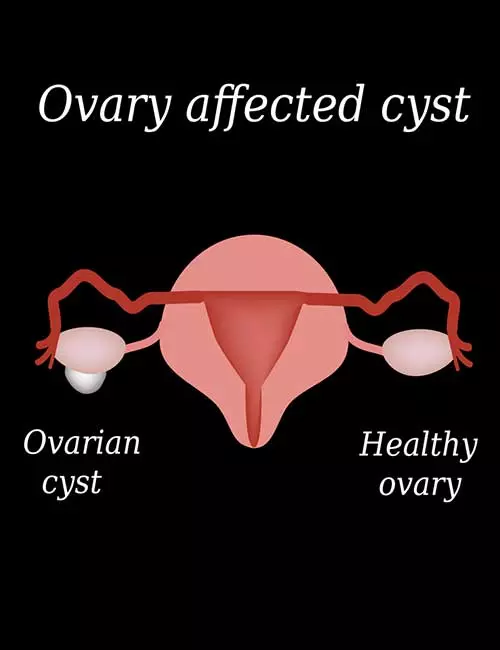


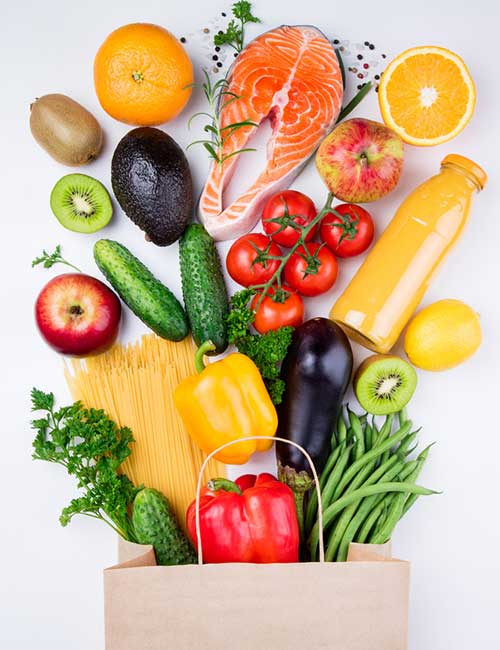









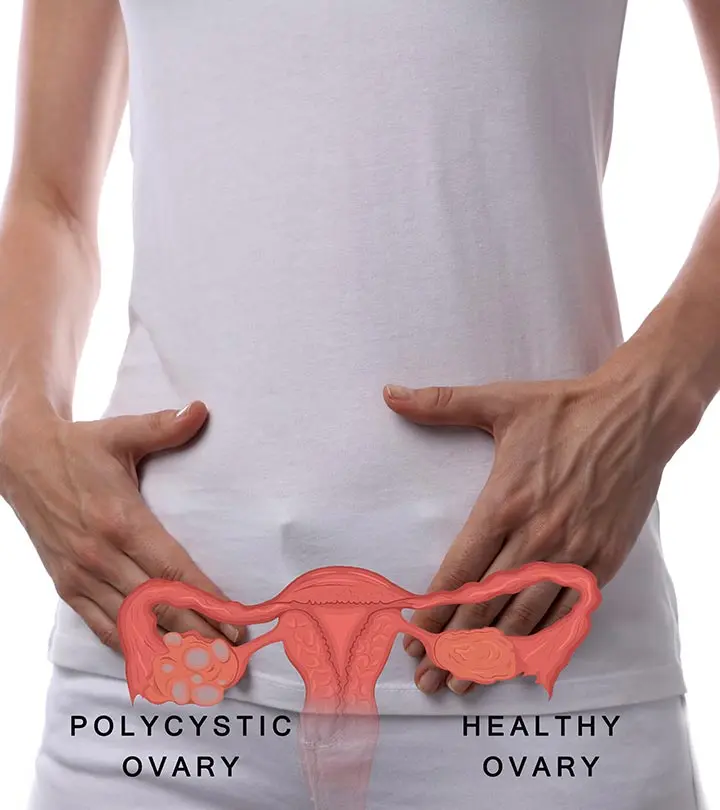
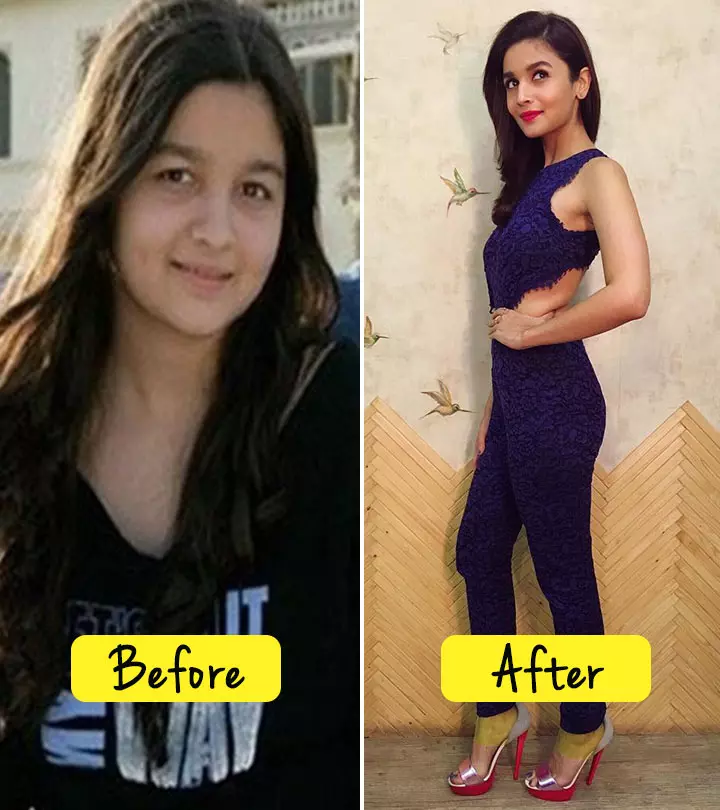
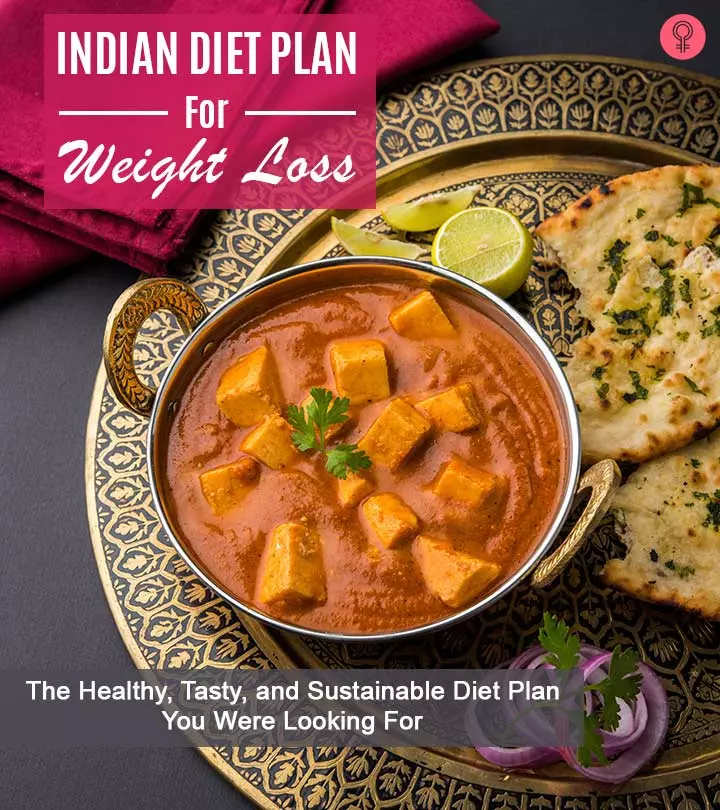
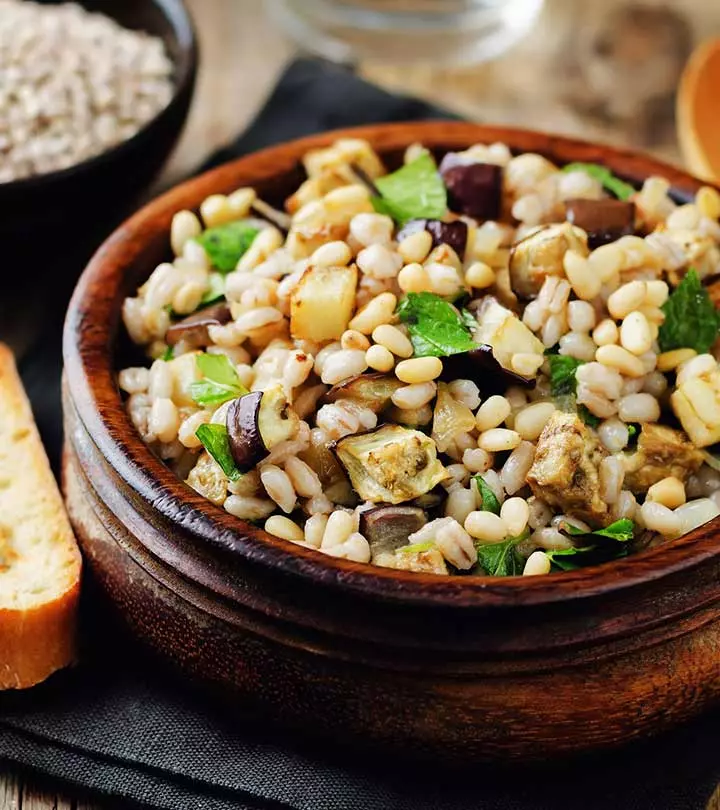


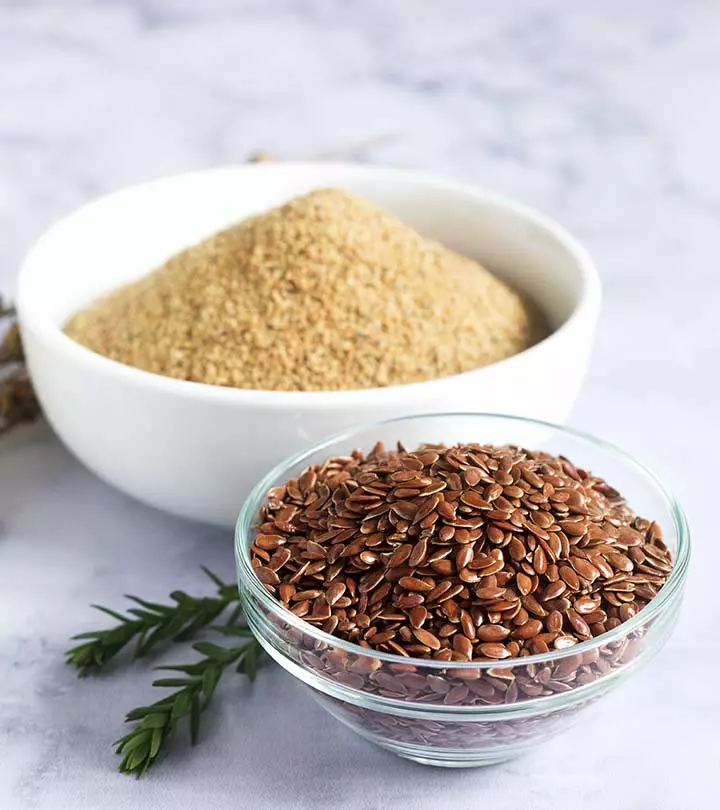
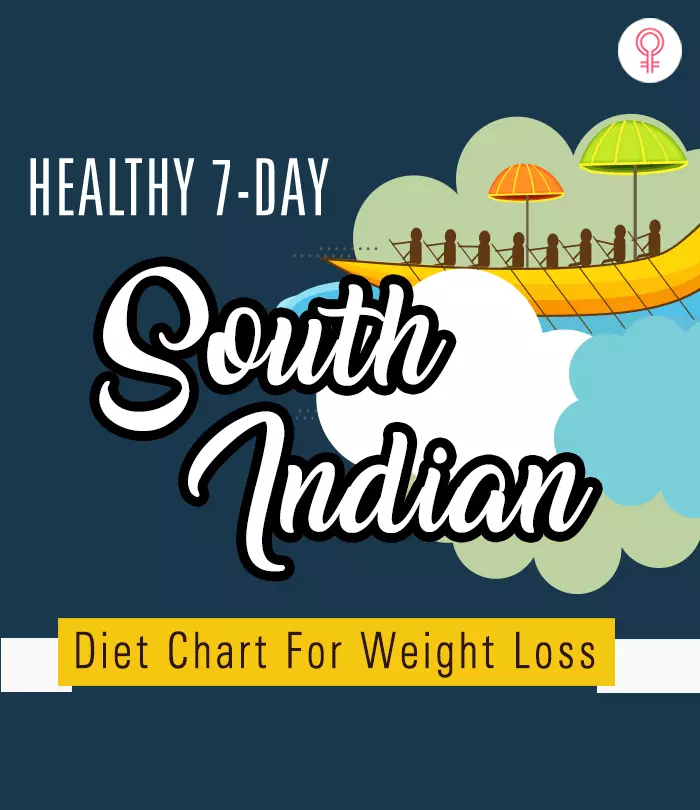












Community Experiences
Join the conversation and become a part of our empowering community! Share your stories, experiences, and insights to connect with other beauty, lifestyle, and health enthusiasts.